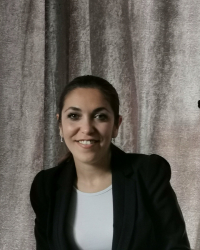The "loss" of an abusive partner
When it comes to leaving an abusive partner, everybody will easily judge "just leave him, it isn't worth staying. He is who he is, you deserve a normal life". What people don't actually realise is that it's easier said than done. The person involved sees it as a pressure on top of the main problem: what if she doesn't meet the adviser's expectations? Will he/she still be there to offer support?
"I told you" is the least thing a victim of abuse wants to hear. It's almost the same as bad as the abuse itself. There is a lot of guilt and self-blame a victim has to deal with anyway: the blame for not being good enough and not doing/saying the right things in the relationship, self-blame for letting it happen, self-blame for not leaving earlier, self-blame for letting it happen to children if there are any involved and even they are not abused, growing up in a household where this is happening, it's still a trauma... This is why offering advice and rescuing, even with good intention, in these situations is not the best option.
The truth is even though leaving an abusive partner is the ideal solution, there are so many losses that make the victim consider when and how to leave. It is important to explore these losses within the counselling sessions otherwise the support will become a simple process of rescuing. Being focused on the positive outcomes of leaving is important because it makes the plan achievable but considering the losses it's a more realistic view. So what could be the losses in leaving an abusive partner?
On a psychological level: the sense of loneliness, losing a social status or social role. When all the closed ones are in a relationship, being single it's almost like a stigma. This feeling is increased if children are involved and the victim has to be a single parent. Sometimes these judgments are real, and closed ones express them, other times they are just in the victim's mind. People form love relationships based on their beliefs and hopes. For example, some believe divorce is not an option this is why they will try their best to avoid happening. It's important to explore them and the consequences of a divorce. It is important also to explore the impact of the separation on the extended family. Being the only one who gets separated, will bring a great sense of failure and shame on the individual and the family as well.
On a religious level: there are religions where divorce is not accepted. Getting divorced means being excluded by the family, community and church. Sometimes those are the main places where the victim ask for support... If they are excluded, where else can they go?
On a financial level: in most of the cases, the victims are dependant financially of their abusers. Starting a new life without a financial security sounds very scary, nevertheless when children are involved. Without finances, it's not easy to find a new place to live, pay bills and carry on a normal life. Sometimes working is impossible if young children need to be looked after.
On a social level: in most of the cases, getting divorced means losing friends. The victim will try as much as possible to avoid places where the perpetrator partner could be, even though this means friends houses, spaces of leisure. In order to be safe, moving house to a new area needs to be considered. Having to deal with all the changes, finding new schools for children, trying to get familiar with the surroundings can be very difficult for somebody who feels vulnerable and scared.
Work: leaving from home requires time out from work. Some employers may not be so happy to offer it, some employees may not want to disclose about their private life.
Personal/family commitments: sometimes victims wait for a relative wedding they have to go to as a family, for children's holiday, for the stressful time from work to finish, for the bereavement in the family to end and so on... it looks like it's never the right moment.
All these being considered, the victims needs to be ready before will decide to leave. Each one of these losses is felt different by different individuals. What may be a problem for one is not for the other. For example one has money to live independently but doesn't have the family support and knows that divorce will affect her public image. Another one knows that family will always be there no matter what but they hardly pay their own bills. Sometimes the victim will make any attempts of leaving before she actually leaves. It doesn't mean she doesn't know what she wants, it means it's hard and she moved on too quick. Sometimes is also hard for the listener and it's energy and time consuming to be there for somebody in this situation, but keep in mind: if for you it feels like this, for the victim is many times worse and having somebody to turn to can make a difference.

Find a therapist dealing with Abuse
All therapists are verified professionals






